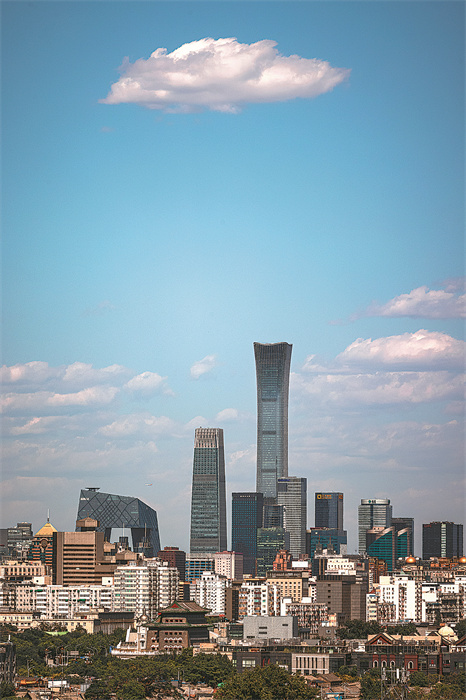Think tank continues to help drive nation's green agenda


Learning from mistakes
The CCICED's founding was not a sudden decision taken by top officials. Rather, it was the result of a carefully considered process in which the leadership was involved.
The body was designed to move the economy onto a more environmentally friendly and sustainable path, Lees said, adding that the top leaders were anxious to learn from foreign experiences, at least at that time, from the 1980s onward.
"They didn't want to make the same mistakes that other countries had made. They wanted to learn from the successes and failures of other countries, and then they considered very carefully how relevant that experience was to them," he said.
"That's very unusual. I've worked internationally for 50 years, and most governments don't bother to listen to other people, but China's leaders were very open, consistent with their commitment to China's development through reform and opening-up."
In 1988, in the lead-up to the council's establishment, Lees organized a group of international experts to meet with senior officials, including Deng Xiaoping and Li Peng.
They met with Deng for two hours, and a major theme of the discussion was the integration of the environment and development, he recalled.
"China's leaders understood right from the beginning that they would ultimately have to find a way to combine those two critical aspects of policy," he said, adding that over 30 years, the council has provided suggestions related to China's environment policies.
Now, China's population numbers more than 1.4 billion.
Lees said another reason the leadership launched the CCICED was that it understood that environmental and climate problems are not simply national but international challenges.
"They wanted to have an international framework in which they could discuss and understand the global implications of what China does and the implications of what other people do for China," he said.
"I think that attitude is still true today, although China's position has changed tremendously."
In the early days, Chinese people had very little experience of working with foreigners, which posed challenges for Lees.
However, the council provided a framework and a process in which the foreign and Chinese members and advisers met for years, so they "developed really strong personal relations of mutual trust". This meant they told each other the truth, so the work was based on highly realistic analyses, he said.
Lees once proposed a program to develop China's environmental protection industry, but when he mentioned the concept, it was so alien to local officials that they didn't understand it. Later, a conference was held to discuss how to organize and manage the country's environmental protection sector. The suggestions made were then included in the 10th Five-Year Plan (2001-05) and are now a major source of employment and growth.
"I think that, frankly, was a very concrete step in this framework that made a difference," he said. In the council, each individual working group works on concrete problems and then produces specific proposals for changes in policy and strategy. They then have the privilege of presenting their suggestions to the leadership each year, he added.
As a platform for high-level dialogue on the environment and development between China and the world, the CCICED has so far invited more than 1,000 experts from both home and abroad to participate in more than 100 research programs, the council said. Overall, these programs have advanced almost 300 policy suggestions.
Compared with similar mechanisms, the council not only has the longest history but also is the most high-profile and influential body.
























